Famine is quite possibly present in parts of the northern Gaza Strip, a senior US State Department official said Friday, adding that an obstacle to getting more aid to Palestinians was a scarcity of trucks in the enclave under Israeli siege.
The UN has warned of a looming famine and complained of obstacles to getting aid in and distributing it throughout Gaza. The US also says famine is imminent, but the official Friday told Reuters it might already be present.
"While we can say with confidence that famine is a significant risk in the south and centre but not present, in the north it is both a risk and quite possibly is present in at least some areas," the official said on condition of anonymity.
The UN-backed global authority on food security warned earlier this month that famine was likely to occur by May in northern Gaza and could spread across the enclave of 2.3mn people by July.
UN spokesman Stephane Dujarric on Wednesday described "tremendous challenges" to distributing aid, including a "lack of security, lack of co-operation with the Israeli authorities, lack of insufficient number of trucks, not enough fuel." Israeli officials say they have increased aid access to Gaza, are not responsible for delays and that the aid delivery inside Gaza is the responsibility of the UN and humanitarian agencies. Israel has also accused Hamas of stealing aid.
The State Department official said one of the biggest issues limiting aid distribution was a scarcity of trucks inside Gaza and that Washington would work to help acquire or help the UN acquire additional trucks.
"They're just about at the limit right now. There aren't additional trucks in Gaza to be loaded from Kerem Shalom or Rafah or Gate 96 with food," the official said, referring to various border crossings into the enclave.
The UN Office for the Co-ordination of Humanitarian Affairs says it has more than 200 trucks for aid delivery within Gaza, including some which are heavily damaged but still operable. But ultimately the UN says not enough aid is getting into Gaza.
The State Department official said that in the past week there was an average of 250 aid trucks a day entering Gaza, but more were needed. The official said the US was working to help get more aid regularly through Gate 96, a new entry point to reach north Gaza, citing a lack of vetted drivers.
He said that separately Israel had facilitated some 350-400 trucks of privately contracted humanitarian aid to northern Gaza over the past three or four weeks.
The US has warned Israel against expanding its military operation into the southern Gaza city of Rafah, where over a million Palestinians are sheltering, without a plan to protect civilians.
The US has been briefed "on some aspects" of the humanitarian plan, the State Department official said, but it has yet to see a comprehensive one. Meanwhile, Israel sustained its aerial and ground bombardment of the Gaza Strip Friday, killing dozens of Palestinians, as fighting raged around Gaza City's main Al Shifa hospital, Palestinian officials and the Israeli military said.
Palestinian health officials said two Israeli strikes on the Al-Shejaia suburb in eastern Gaza City killed 17 people, while an Israeli air strike on a house in the Al-Maghazi refugee camp in the central Gaza Strip killed eight people.
Gaza's Hamas-run government media office said at least 10 policemen, tasked with securing aid to the displaced in northern Gaza, were among those killed in Al-Shejaia.
The armed wing of Hamas said their fighters targeted Israeli forces near to Nasser Hospital in Khan Younis, one of the city's two hospitals blockaded by Israeli soldiers for several days.
In the far south of the Strip, Israel continued its bombardment in Rafah, the Palestinians' last refuge.
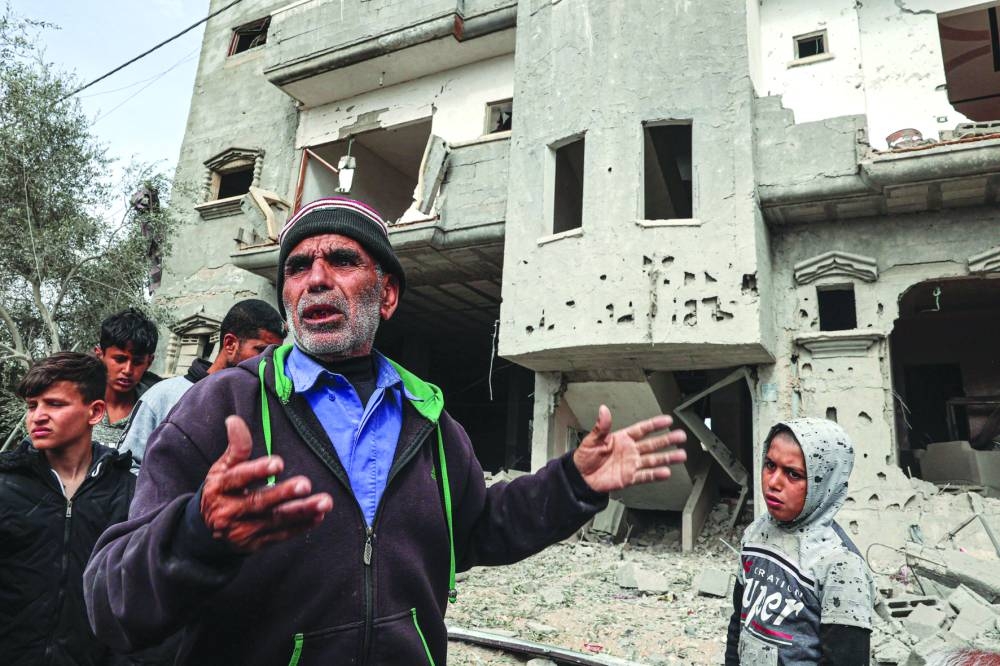
Palestinians inspect the damage to a building after overnight Israeli bombardment in Rafah in the southern Gaza Strip Friday.
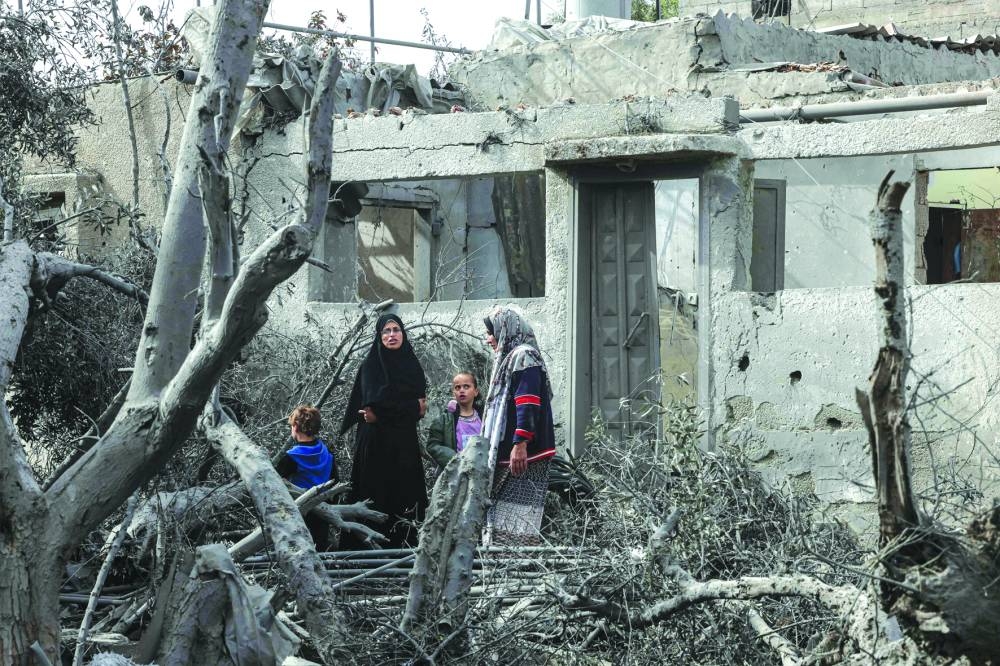
Palestinians inspect the damage to a building after overnight Israeli bombardment in Rafah in the southern Gaza Strip Friday.
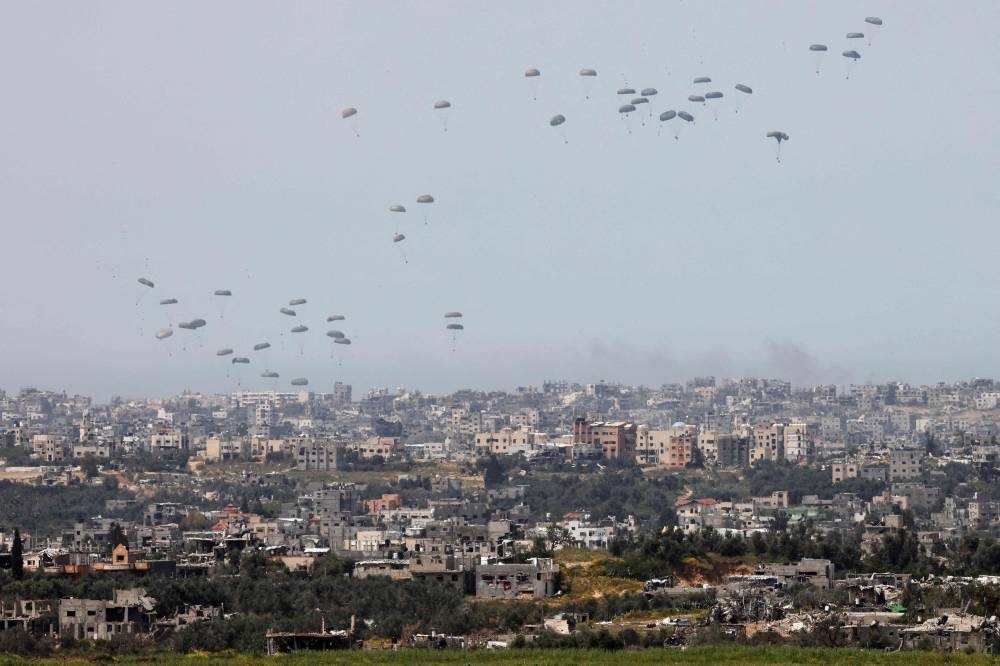
This picture taken from Israel's southern border with the Gaza Strip shows a military aircraft releasing parachutes of humanitarian aid over the besieged Palestinian territory on Wednesday. AFP
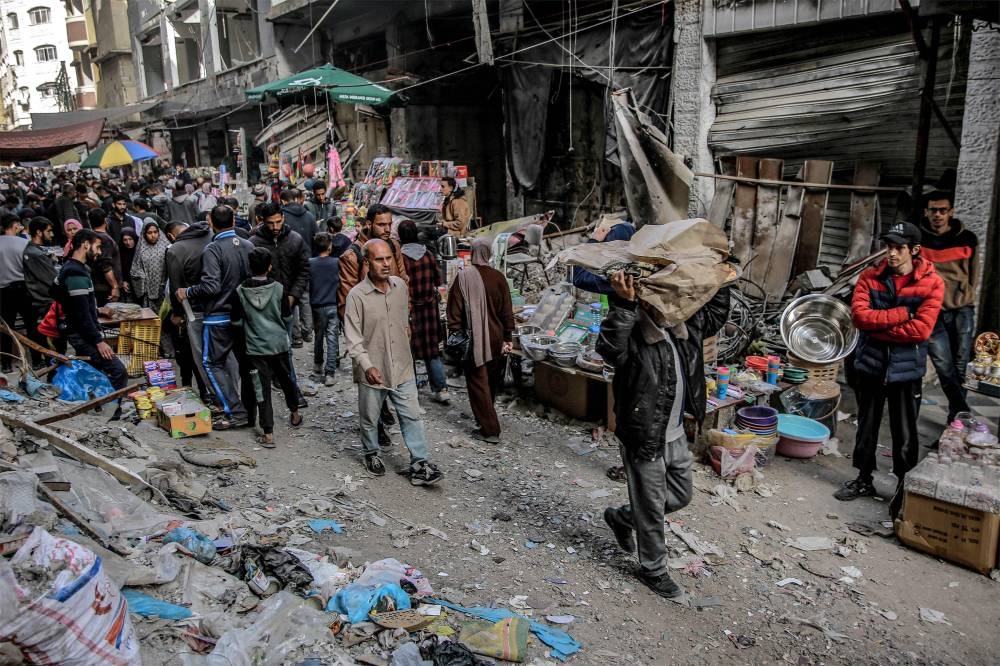
People shop from vendors in an open-air market amidst destruction in Gaza City on Wednesday. AFP
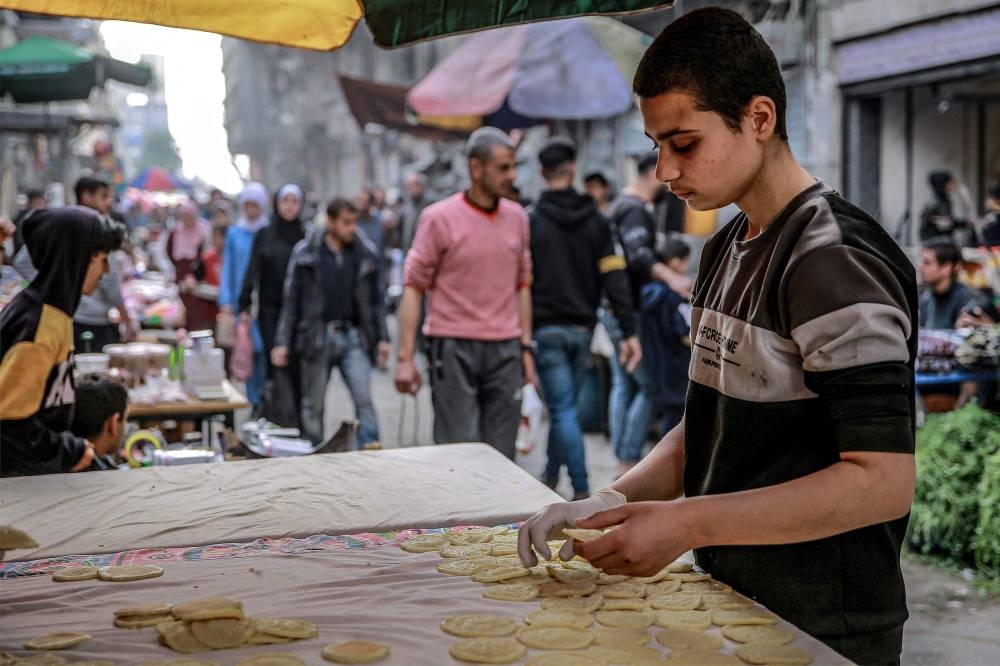
A street vendor prepares raw qatayef, folded pancakes or dumplings, to be later cooked along a stall in Gaza City on Wednesday. AFP
